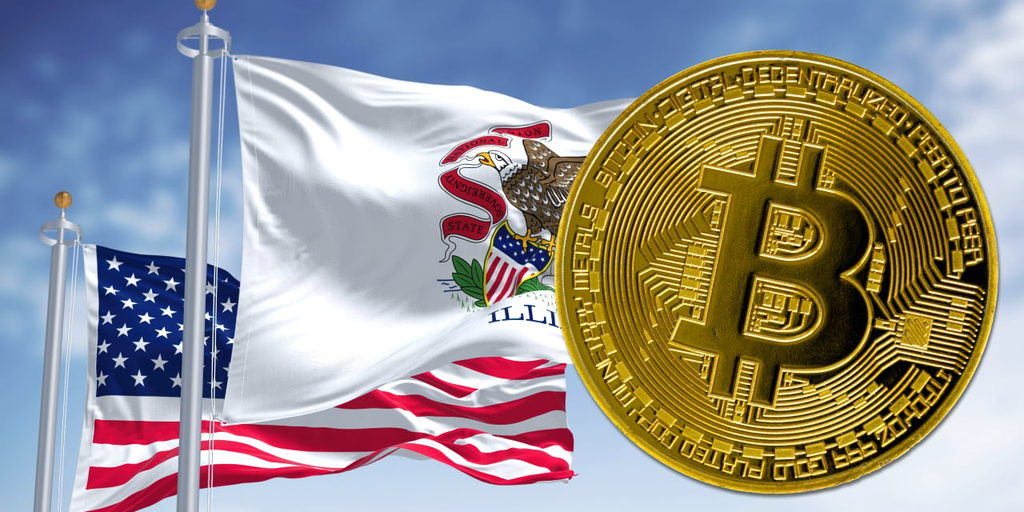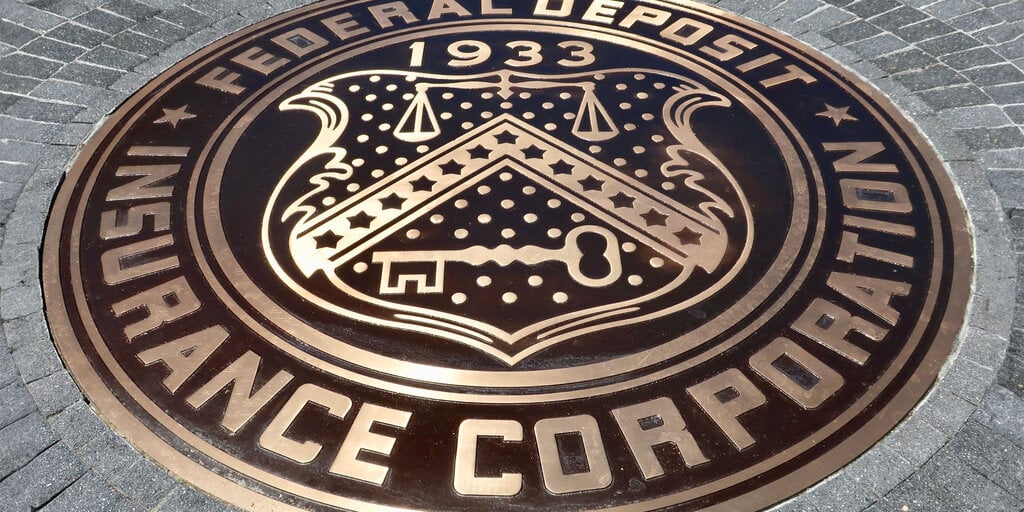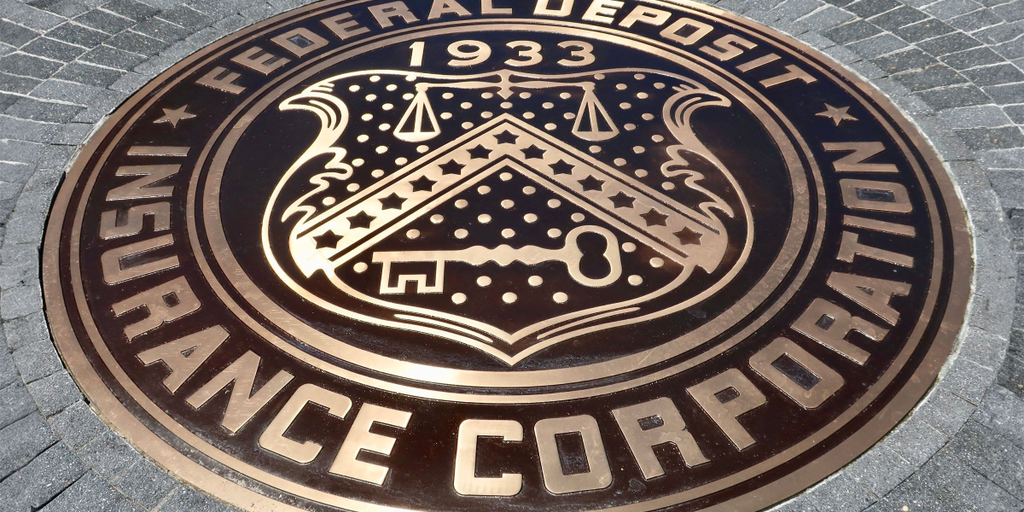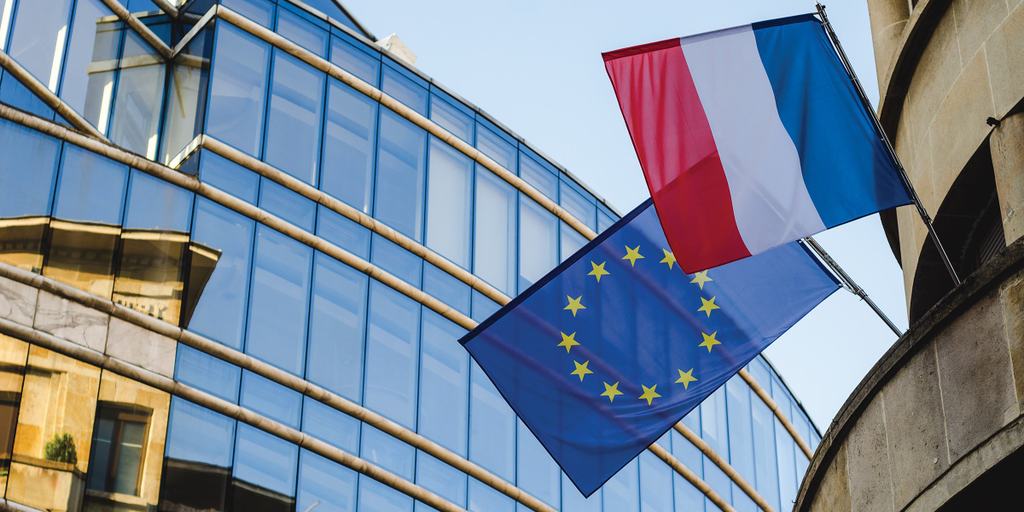business
Another Publicly Traded Firm Just Adopted a Bitcoin Reserve Strategy
Published
3 months agoon
By
admin

Matador Technologies, a Canadian crypto firm, said Monday that it would begin leveraging Bitcoin as a treasury reserve asset, starting with a $4.5 million purchase later this month.
The little-known company has been developing a platform on top of Bitcoin’s network, which will enable users to one day purchase and trade digital representations of gold, according to a press release. The company previously said it’s targeting a launch of “early 2025” for said platform.
The company, formerly known as Scaling Capital 1, began trading on the TSX Venture Exchange last week under its new name. Since Matador’s debut last Tuesday, its stock price has fallen 35% from a closing price of $0.90 to $0.58, as of this writing.
Since software firm MicroStrategy began purchasing Bitcoin in 2020—ultimately amassing more than $41 billion worth as of this writing—major tech companies like Tesla have brought the asset onto their own balance sheets.
But with firms like Microsoft declining to take that route recently, many companies following in MicroStrategy’s footsteps have been relatively small. With a market capitalization of $49.5 million, Matador undoubtedly fits within that group.
Eventually, Matador plans on releasing a mobile application that lets users “buy, sell, and store gold 24/7,” according to a press release. But the company has said it plans to “build a significant portfolio of products” beyond the precious metal, according to its website.
Matador said Monday that its Bitcoin-buying endeavors were unanimously approved by the company’s board of directors. As part of the move, Matador said it would meanwhile shift the majority of its cash balances to the U.S. dollar, while ditching Canada’s official currency.
The Canadian firm said that it had assessed its platform’s viability on Ethereum and Solana, but Bitcoin was chosen for its secure and stable network at the end of the day. Matador added that physical gold reserves backing its digital representations will be held at the Royal Canadian Mint, a corporation owned solely by the Canadian government.
“Matador’s board and management believe in using Bitcoin to future-proof our treasury,” Matador President Sunny Ray said in a statement. “This step also supports our mission to explore using Bitcoin as a platform for our gold-based products.”
Among firms that have adopted Bitcoin this year, the Japanese investment firm Metaplanet has built up a $164 million stash since its first purchase in April, according to Bitcoin Treasuries. But there’s overlap between Metaplanet and Matador beyond Bitcoin and starting with the letter M.
BTC Inc., the parent company of Bitcoin Magazine, is known for hosting a popular line of Bitcoin conferences, but it also operates UTXO Management as its investment arm.
The company’s co-founder and managing partner, Tyler Evans, sits on Metaplanet’s board of directors. In a press release earlier this month, Matador said that Evans would serve on its board of directors as well.
Matador, Evans, and Metaplanet did not immediately respond to a request for comment from Decrypt.
Edited by Andrew Hayward
Daily Debrief Newsletter
Start every day with the top news stories right now, plus original features, a podcast, videos and more.
Source link
You may like


$90K Breakout Ahead as BTC Decouples from US stocks after China’s Tariffs


Toncoin Takes A Hit With 12% Correction After Failing To Break $4.34, More Pain?


Bitcoin sentiment falls to 2023 low, but ‘risk on’ environment may emerge to spark BTC price rally


Crypto Trader Says Dogecoin Is at a Critical ‘Make-or-Break’ Level, Updates Outlook on Solana and Avalanche


Bitcoin Covenants: CHECKSIGFROMSTACK (BIP 348)


Illinois State Senator’s Bill Seeks to Claw Back $163 Million Lost to Crypto Fraud
business
Illinois State Senator’s Bill Seeks to Claw Back $163 Million Lost to Crypto Fraud
Published
6 hours agoon
April 4, 2025By
admin

With millions lost to crypto fraud in Illinois, a new bill aims to tighten regulations in the digital asset space.
On Thursday, the Illinois Senate Executive Committee passed Senate Bill 1797, the Digital Assets and Consumer Protection Act, which seeks to regulate digital asset businesses within the state.
The bill, first introduced in February by State Sen. Mark Walker (D-Arlington Heights), aims to address the mounting problem of crypto fraud, which led to over $163 million in losses in Illinois alone in 2023, as per a Thursday statement.
“The rise of digital assets has opened the door for financial opportunity, but also for bankruptcy, fraud, and deceptive practices,” Walker said, adding that, “We must set standards for those who have evolved in the crypto business to ensure they are credible, honest actors.”
The bill, which passed in an 8-4 vote, now moves to the full Senate for consideration. If approved, it will proceed to the House of Representatives for further deliberation before being sent to Governor J.B. Pritzker for final approval.
The legislation designates the Illinois Department of Financial and Professional Regulation (IDFPR) as the primary regulatory body overseeing the activities of digital asset companies.
Such companies will be required to register with IDFPR, providing necessary disclosures and demonstrating their financial stability to ensure consumer protection
A key provision of the bill mandates that companies implement safeguards for customer assets to prevent fraud and mismanagement.
Since its introduction in February, several state senators later added their support as co-sponsors to SB1797: Sen. Karina Villa on March 18, Sen. Rachel Ventura on March 19, and Sen. Michael Hastings, Linda Holmes, and Christopher Belt on March 20.
Illinois and crypto
With this new push, Illinois is taking strict steps to ensure the state’s consumers are protected in the crypto space.
In February, Sen. Dick Durbin introduced the Crypto ATM Fraud Prevention Act to protect consumers, particularly seniors, from scams involving crypto ATMs.
The bill would enforce transaction limits and require operators to offer refunds to victims who report fraud within 30 days.
Meanwhile, on the national stage, House Financial Services Committee Chair French Hill (R-AR) recently said that the personal crypto dealings of President Donald Trump and his family have complicated the drafting of legislation for the crypto sector.
Daily Debrief Newsletter
Start every day with the top news stories right now, plus original features, a podcast, videos and more.
Source link
business
FDIC Clears Path for Bank Crypto Activities Without Prior Approval
Published
6 days agoon
March 29, 2025By
admin

Banks can engage in cryptocurrency and other legally permitted activities without seeking prior regulatory approval, so long as they manage risks appropriately, The Federal Deposit Insurance Corporation announced Friday.
The policy change rescinds a 2022 requirement that mandated FDIC-supervised institutions notify the agency before engaging in crypto-related activities. Under the new guidance, banks can offer services involving digital assets without the agency’s advance permission.
“With today’s action, the FDIC is turning the page on the flawed approach of the past three years,” FDIC Acting Chairman Travis Hill said in a statement. “I expect this to be one of several steps the FDIC will take to lay out a new approach for how banks can engage in crypto and blockchain-related activities in accordance with safety and soundness standards.”
The move aligns with similar actions by the Office of the Comptroller of the Currency, which earlier this month reaffirmed that national banks can engage in certain crypto activities, including custody services and stablecoin transactions.
This regulatory shift marks a stark departure from the Biden administration’s approach to cryptocurrency and banking relationships. Documents released earlier this year through Freedom of Information Act requests showed the FDIC frequently deterred banks from offering crypto-related services, critics claimed.
The previous regulatory stance had drawn criticism from lawmakers who started investigations into what some called “Operation Chokepoint 2.0,” a reference to an Obama-era initiative that targeted certain industries including firearms dealers and payday lenders. Critics claimed the Biden administration had similarly targeted the cryptocurrency industry through banking restrictions.
In its new Financial Institution Letter (FIL-7-2025), the FDIC clarified that “FDIC-supervised institutions may engage in permissible crypto-related activities without receiving prior FDIC approval.”
The reversal follows months of pressure from cryptocurrency advocates and completes a significant pivot in federal banking policy. Industry representatives had accused regulators of using informal pressure tactics, including concerns about “reputational risk,” to discourage banks from serving cryptocurrency businesses.
American Bankers Association President and CEO Rob Nichols praised the decision. “We welcome FDIC’s new guidance allowing supervised institutions to engage in permissible crypto-related activities without receiving prior FDIC approval,” he said in an official statement. “America’s banks are actively evaluating ways to compete safely and responsibly across the financial services ecosystem, and this type of regulatory clarity is critical to enhancing innovation in the space.”
The FDIC emphasized that banks still need to consider various risks associated with crypto activities, including market and liquidity risks, operational and cybersecurity concerns, consumer protection requirements, and anti-money laundering obligations. The agency noted that institutions “should engage with their supervisory team as appropriate” when pursuing such activities.
Friday’s announcement comes as part of a broader effort by the Trump administration to remove hurdles for digital assets. Besides the OCC’s actions, the government is pushing for a crypto reserve, and taking actions to boost the local crypto ecosystem.
While cryptocurrency advocates welcomed the policy reversal, challenges remain for the industry—which, as consequence, means not everyone is excited with this regulatory shift. “Holy shit, the next Wall St. crash is going to make us long for the good ol’ days of the Great Depression,” said Justin Rosario, host of the political podcast “The Opinionated Ogre.”
Others expressed concerns about the abruptness of the change. “FDIC announces robust new requirement to engage in crypto activities: you must pinky swear,” bank advisor and expert Donald F. Billings wrote on LinkedIn.
The FDIC regulates and insures banks that hold trillions of dollars in deposits. Its new stance could potentially unlock significant capital flows into the cryptocurrency sector as banks reassess their ability to serve digital asset companies and offer crypto-related products to customers.
Edited by James Rubin
Daily Debrief Newsletter
Start every day with the top news stories right now, plus original features, a podcast, videos and more.
Source link
business
France’s Public Investment Bank Bpifrance to Invest $27 Million in Crypto
Published
1 week agoon
March 28, 2025By
admin

France-based public investment bank Bpifrance announced Thursday plans to invest $27 million (€25 million) directly into tokens and decentralized technologies in an effort to “strengthen the French blockchain ecosystem.”
Announced during a blockchain-focused event in Paris, the bank’s investment seeks to accelerate its “digital asset investment strategy” by bolstering French crypto startups and assisting the local venture capital players in Web3.
“We are convinced of the growing importance that these players will take on in the years to come, and we want to increase French competitiveness and presence in the field of digital assets,” Arnaud Caudoux, Deputy CEO of Bpifrance, said in a Thursday statement.
Bpifrance’s new fund will complement its long-standing financial support mechanisms—like grants, loans, and equity funding—by targeting blockchain-native models with a strong “French footprint.”
DeFi, staking, tokenization, Layer 1–3 protocols, AI-driven tools, and digital ID solutions are among them.
It represents one of the first moves by a major state investment bank to purchase open-market crypto tokens—a “pioneering initiative,” as Bpifrance put it.
Bpifrance will specifically target “smaller, newly-issued tokens” from French projects—assets that have yet to be listed on exchanges.
“The U.S. is really accelerating its own crypto strategy, so this is all the more important,” Caudoux said as cited in a Reuters report, noting the U.S. crypto push under President Donald Trump as a wake-up call.
Since his re-election, Trump has pledged to make the U.S. the “undisputed Bitcoin superpower,” floated plans to mine Bitcoin domestically, and vowed to make the nation the “crypto capital” of the world.
The pro-crypto President’s administration has also rolled back SEC enforcement against crypto firms, drawing blockchain talent and capital toward the U.S. at a time when Europe remains cautious.
In response to developments in the U.S., Bpifrance’s initiative seeks to retain and nurture blockchain talent within France.
Bpifrance is no stranger to crypto—it first backed hardware wallet firm Ledger in 2014 and has since invested in Aleph.im, Morpho, ACINQ, and others.
In a 2023 interview with Decrypt, Bpifrance’s Blockchain & Crypto Lead Ivan de Lastours said the bank was also exploring zero-knowledge proofs, noting their potential to verify authenticity in a world dominated by AI-generated content.
“They may be key to the future of the internet,” de Lastours said.
Walking the line
France’s broader crypto momentum got another boost this week when The Blockchain Group, a France-based tech firm listed on Euronext Paris, announced it had purchased 580 BTC, worth roughly $50.6 million.
While such initiatives show a proactive approach to Web3 innovation in France, it comes at a time when the country’s regulatory bodies are intensifying scrutiny of the crypto sector.
In January, French authorities launched a judicial investigation into Binance, the world’s largest crypto exchange, over allegations of money laundering and tax fraud.
The probe focused on activities between 2019 and 2024, with potential offenses committed in France and the European Union.
In November 2024, the French gambling regulator, ANJ, began probing Polymarket, a crypto-based prediction market platform, to assess its compliance with French gambling laws.
The probe was triggered after a French trader reportedly placed a multi-million-dollar wager on the outcome of the U.S. presidential election, prompting Polymarket to cut off access for users in France, effectively shutting out a significant segment of its audience.
Edited by Sebastian Sinclair
Daily Debrief Newsletter
Start every day with the top news stories right now, plus original features, a podcast, videos and more.
Source link
Circle’s IPO Filing Tests Crypto Market Confidence After Trump’s Tariff Shock

$90K Breakout Ahead as BTC Decouples from US stocks after China’s Tariffs

Toncoin Takes A Hit With 12% Correction After Failing To Break $4.34, More Pain?

Bitcoin sentiment falls to 2023 low, but ‘risk on’ environment may emerge to spark BTC price rally

Crypto Trader Says Dogecoin Is at a Critical ‘Make-or-Break’ Level, Updates Outlook on Solana and Avalanche

Bitcoin Covenants: CHECKSIGFROMSTACK (BIP 348)

Illinois State Senator’s Bill Seeks to Claw Back $163 Million Lost to Crypto Fraud

Here’s why Bitcoin, altcoins, and the stock market continued falling on Friday

Bitcoin Falls Back to $83K, XRP, SOL, DOGE Surrender Gains as China Announces 34% Tariffs on All U.S. Goods

BTC Holds $84K, ATOM & FIL Become Top Gainers

Analysts Eye 20% Breakout If This Level Is Reclaimed

AI and blockchain — A match made in heaven

‘We’re Still in Danger Territory’: Crypto Analyst Unveils Bearish Setup for Bitcoin – Here Are His Targets

Bitcoin Startups Raised Nearly $1.2 Billion

Illinois to End Lawsuit Against Coinbase Over Staking Program: Report

Arthur Hayes, Murad’s Prediction For Meme Coins, AI & DeFi Coins For 2025

Expert Sees Bitcoin Dipping To $50K While Bullish Signs Persist

Aptos Leverages Chainlink To Enhance Scalability and Data Access

Bitcoin Could Rally to $80,000 on the Eve of US Elections

Sonic Now ‘Golden Standard’ of Layer-2s After Scaling Transactions to 16,000+ per Second, Says Andre Cronje

Institutional Investors Go All In on Crypto as 57% Plan to Boost Allocations as Bull Run Heats Up, Sygnum Survey Reveals

Crypto’s Big Trump Gamble Is Risky

Ripple-SEC Case Ends, But These 3 Rivals Could Jump 500x

Has The Bitcoin Price Already Peaked?

A16z-backed Espresso announces mainnet launch of core product

Xmas Altcoin Rally Insights by BNM Agent I

Blockchain groups challenge new broker reporting rule

The Future of Bitcoin: Scaling, Institutional Adoption, and Strategic Reserves with Rich Rines

Trump’s Coin Is About As Revolutionary As OneCoin

Is $200,000 a Realistic Bitcoin Price Target for This Cycle?
Trending

 24/7 Cryptocurrency News5 months ago
24/7 Cryptocurrency News5 months agoArthur Hayes, Murad’s Prediction For Meme Coins, AI & DeFi Coins For 2025

 Bitcoin3 months ago
Bitcoin3 months agoExpert Sees Bitcoin Dipping To $50K While Bullish Signs Persist

 24/7 Cryptocurrency News3 months ago
24/7 Cryptocurrency News3 months agoAptos Leverages Chainlink To Enhance Scalability and Data Access

 Bitcoin5 months ago
Bitcoin5 months agoBitcoin Could Rally to $80,000 on the Eve of US Elections

 Altcoins2 months ago
Altcoins2 months agoSonic Now ‘Golden Standard’ of Layer-2s After Scaling Transactions to 16,000+ per Second, Says Andre Cronje

 Bitcoin5 months ago
Bitcoin5 months agoInstitutional Investors Go All In on Crypto as 57% Plan to Boost Allocations as Bull Run Heats Up, Sygnum Survey Reveals

 Opinion5 months ago
Opinion5 months agoCrypto’s Big Trump Gamble Is Risky

 Price analysis5 months ago
Price analysis5 months agoRipple-SEC Case Ends, But These 3 Rivals Could Jump 500x


